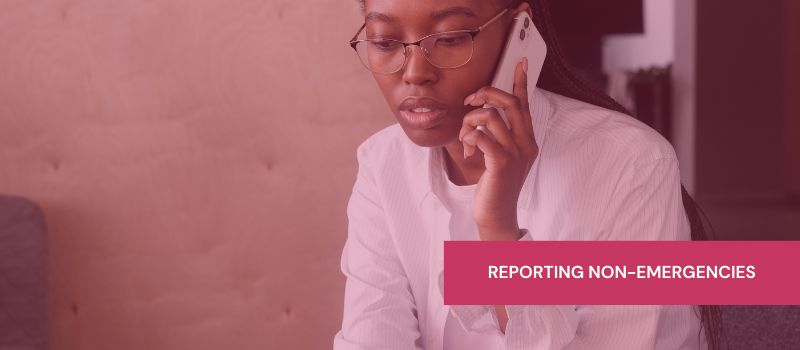

In a busy hospitality environment, it’s easy to focus only on the most urgent issues—but not every incident that affects your property, staff, or guests is a 911 emergency. That said, these events still require attention, especially when it comes to reporting them to police. Whether it's a minor motor vehicle collision in the parking lot, damage to property under $5,000, or a break-in discovered after the fact, these non-emergency incidents still play a critical role in the bigger picture of public safety.
The Alberta RCMP recently launched a new, province-wide number to make reporting non-urgent matters easier: 310-RCMP (310-7267). No area code is required, and the line connects you directly to the nearest RCMP detachment.
What Counts as a Non-Emergency?
Non-emergencies are situations that do not pose an immediate or potential threat to life or public safety but still require police response. These are typically events that have already occurred and don’t require an immediate officer on the scene. Examples include:
While these situations may not require urgent police attendance, they are still important to report. If you’re ever unsure about whether an incident qualifies as an emergency—it's always best to call 911.
Why Reporting Matters
Filing a report—even for something seemingly small—helps build a broader picture of what’s happening in your community and your industry. These reports help police departments track trends, identify hotspots, and allocate resources more effectively. For hotel properties, this data can also be useful when evaluating risk, improving staff protocols, or filing insurance claims.
More than that, your commitment to consistent reporting reinforces a culture of safety and responsibility among your staff. It reminds your team that every incident, big or small, is worth documenting—and that your property takes safety seriously.
Tying It All Together: Be Prepared, Be Proactive
Knowing the difference between emergencies and non-emergencies—and reporting each appropriately—is a key part of creating a safe and responsive hotel environment. By reporting these incidents, you’re not only fulfilling your responsibility but also contributing to better crime data and safer communities.
However, reporting is just one piece of the safety puzzle. When an incident occurs at your workplace, especially one that requires internal follow-up, it’s critical to know how to investigate properly. If you're unsure about what steps to take or how to document your findings, we encourage you to join our upcoming Incident Reporting and Investigation training on May 14, 2025. This four-hour instructor-led online session is tailored for employers, safety coordinators, and Joint Health and Safety Committee members who need to understand what to investigate, how to do it effectively, and how to prepare a compliant incident report.
Additionally, on AHLA’s Emergency Response Planning Page, you’ll find toolkits, and other resources to strengthen your property’s readiness for a variety of emergency situations.
Whether it’s a police report, an internal incident, or a larger emergency—being informed, prepared, and proactive is your best defense.
Learn more about the Incident Reporting and Investigation Training.